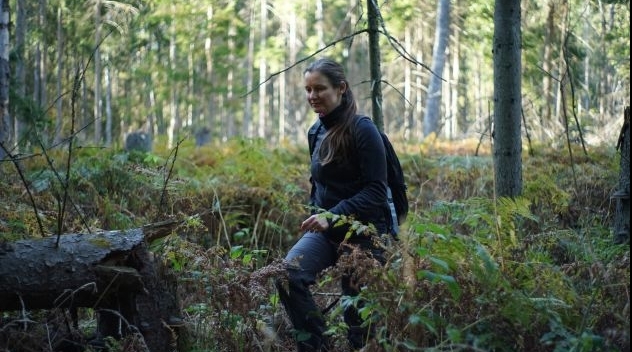"We underestimate the importance of biodiversity”
How are we going to be able to achieve the UN’s 17 global sustainable development goals? According to Malgorzata Blicharska at the Department of Earth Sciences, biodiversity is an indispensable part of the solution. “Our examples show that biodiversity contributes to sustainable development in many sectors, including agricultural production, health, water management, economic development and urban planning.”
In November 2019, a study by Malgorzata Blicharska and Patrik Rönnbäck from Uppsala University, as well as researchers from the Swedish University of Agricultural Sciences and the UK was published in the journal Nature Sustainability. The study showed how biodiversity can contribute to achieving the UN’s 17 global sustainable development goals, either directly or indirectly.
Malgorzata Blicharska got the idea for the study as far back as in 2015. That was when the UN adopted the 2030 Agenda for Sustainable Development and its global sustainable development goals began turning up in the calls for proposals among research funders.
“In all conversations about funding, you were meant to relate to the global sustainable development goals,” says Malgorzata Blicharska. “Then I had an idea: biodiversity is mentioned in two of the sustainable development goals, the ones that relate to the oceans, seas and marine resources and to ecosystems and biodiversity. How would it be if you could investigate the importance of biodiversity to all of the global sustainable development goals?”
The term biodiversity includes all the diversity within species, between species and in habitats that exist on Earth. The researchers systematically collected examples from scholarly studies on the importance of biodiversity and its links to the global sustainability goals.
Crucial for food and health
The researchers found a host of examples of a direct relationship between biodiversity and a further ten of the sustainable development goals. How humans utilise and exploit soils, water, forests, plants, animals and other organisms has an impact on the incidence of famine, poverty and ill health.
“An example is our dependence on pollinators for the production of food. We don’t often perceive this need in Sweden because we don’t need to grow many of the plants we eat. We can import them and buy them in supermarkets, which we can still afford to do,” says Malgorzata Blicharska.
“But droughts or floods are threatening food production today in various parts of the world, and this may also have repercussions here. Today more than 35 per cent of global food production is dependent on crop pollinators”.
“Another example is bacteria. We probably don’t think of the microorganisms that live in our gut and which are so important for our immune system as part of biodiversity. The same thing applies to the bacteria living on our skin. The fact is that less diversity among these bacteria is considered to lie at the root of the imbalances that can lead to atopic dermatitis,” says Malgorzata Blicharska.
“We can see many examples in the reviewed studies of how the preservation of ecosystems reduces the incidence of infectious diseases. The genetic tendency to develop allergies is more common in environments with less biodiversity. Also, one of the studies show that asthma in children occurs to a lesser extent in busy urban areas that also consist of 40 per cent green spaces.”
According to the research group, the UN’s other sustainable development goals can be achieved indirectly by many direct contributions. When the basic needs of citizens are secured, there can be development towards peaceful, educated and gender-equal societies for example.
Biodiversity for economic gain
But is it really possible to take into account all the information about biodiversity’s importance when taking important societal decisions? Even if this is a complex and difficult task, Malgorzata Blicharska believes that there is no alternative but to try. And the biggest burden of responsibility lies with the government and government agencies.
“With the kind of data in this study, politicians can make decisions based on evidence that highlights the disadvantages and advantages of different measures. Is it possible to slow down the economy to some extent, and not spend so much on infrastructure for example? If we just go on growing and developing our economy in order to keep on increasing our wealth, it disrupts the balance in our ecosystems. And then we won’t have anything that could be called ‘the good life’ in 50 or even 20 years,” says Malgorzata Blicharska.
“For example, if we want to save money on health care, there are studies showing how investment in green spaces in cities results in lower health care costs. The benefits of taking ecosystems and biodiversity into account do outweigh the disadvantages after all. We must take these steps if we are going to achieve the sustainable development goals.”
Anneli Björkman
Read more:
The research group’s article in Nature Sustainability: Biodiversity's contributions to sustainable development
Press release (Swedish only): Biologisk mångfald påverkar alla globala hållbarhetsmål
More about Malgorzata Blicharska’s research at the Natural Resources and Sustainable Development Division, Department of Earth Sciences

